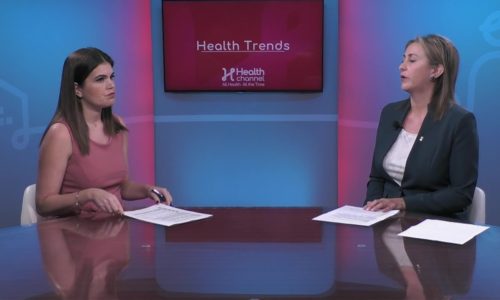Brain Health: Strokes |
Rosemarie Schwitzer, Advanced Registered Nurse Practitioner with West Kendall Baptist Hospital, says there are two different types of strokes: ischemic stroke is the most common and it happens when there is a blocked blood vessel, because of a blood clot or a cholesterol plaque that is stopping the blood flow of the brain.
The second type is the hemorrhagic stroke, which is a rupture of a blood vessel due to hypertension or an aneurysm rupture. It is the most dangerous type of stroke, because it can cause a change in the pressure of the head and the brain tries to seek a way out. **************************************************************************************************************************************************************************
SUBSCRIBE to our YouTube channel:
.
.
Follow us on social media:
FACEBOOK:
TWITTER:
INSTAGRAM:
.
.
Listen to our Podcast:
SPOTIFY:
APPLE PODCAST:
.
.
Visit us at:
WEBSITE:
************************************************************************************************************************************************************************** **************************************************************************************************************************************************************************
SUBSCRIBE to our YouTube channel:
.
.
Follow us on social media:
FACEBOOK:
TWITTER:
INSTAGRAM:
.
.
Listen to our Podcast:
SPOTIFY:
APPLE PODCAST:
.
.
Visit us at:
WEBSITE:
**************************************************************************************************************************************************************************








